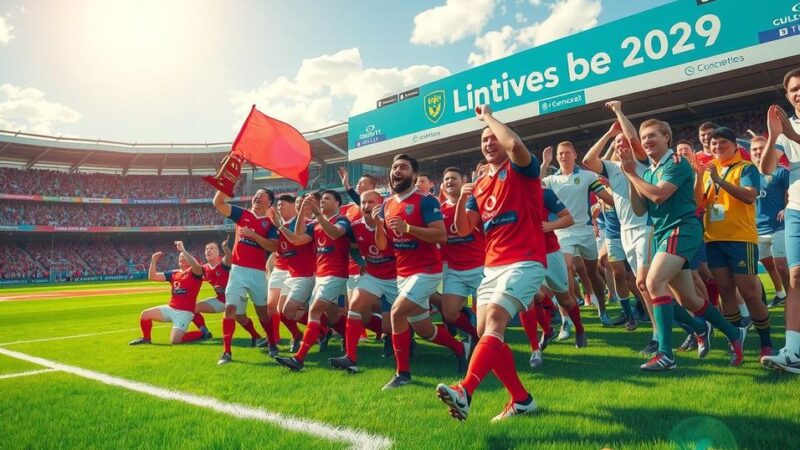The Warriors cricket team lost five points for failing to field the required number of black players, resulting in the Dolphins gaining points and altering playoff dynamics. This incident showcases the complicated interplay of race and sports in South Africa, highlighting the challenges of transformation policies that seek to balance representation with merit.
The Warriors cricket team has incurred a deduction of five points following their victory against the Dolphins in the men’s One-Day Cup match held at Kingsmead on February 16. This action has resulted in the Dolphins being awarded four points, thereby altering the standings significantly and affecting playoff placements. Consequently, the Warriors are now out of contention for an upcoming qualifier, which will be contested between the Dolphins and the Titans.
This situation raises profound questions regarding how competitive success can be undermined by administrative decisions. The Warriors, despite their convincing triumph, found themselves in a position where a bureaucratic scorecard dictated the final outcome of their campaign. This second scorecard focuses on race demographics, ensuring that selections align with Cricket South Africa’s transformation targets rather than purely on sporting performance metrics.
On the date of the match, the Warriors did not meet the stipulated requirement of fielding a minimum of three black players. They fielded only two, and sought no formal exemption. Consequently, they faced severe repercussions for this breach, as communicated through an official penalty received 21 days post-match.
The results of this sanction were announced amidst contradictory messaging from Cricket South Africa, with earlier news stating Boland’s access to the final while failing to mention the penalties against the Warriors immediately. The complexities surrounding race and cricket in South Africa reflect broader societal issues stemming from a long history of apartheid.
The Warriors, an organization with access to a wealth of black talent, stand in contrast to the objectives of race-based selection. The situation is further complicated by the coaching of Robin Peterson, a brown individual navigating through the systemic inequalities that persist in society. The ongoing struggle against historic injustices continues to manifest in cricket, as demonstrated through discontent from current players regarding these policies.
Craig Marais, a former player, expressed his frustration, stating that transformation goals, although initially necessary, now lead to discrimination against colored cricketers. Marais elucidated a feeling of marginalization, questioning whether South Africa should penalize successes that involve a lack of black representation without recognizing the contributions of brown players alike.
In conclusion, the Warriors’ predicament not only exemplifies the pitfalls of transformation policies but also highlights the broader ramifications of socio-economic divides within South African society. The overarching narrative presents an ongoing challenge: finding a balance between equitable representation and the intrinsic value of meritocracy in sports. The Warriors incident serves as a striking case study in the complexities of race and equity within a nation striving for reconciliation.
This article illustrates the contentious intersection of sports, race, and historical legacies in South Africa as it pertains to the Warriors’ recent sanction for failing to adhere to specific player demographics. The penalization reflects deeper societal issues and raises critical questions about the application of transformation policies in a sporting context. While these measures aim to rectify past inequities, they also risk perpetuating division and discrimination within the realm of cricket, necessitating a reevaluation of their impact.
Original Source: www.cricbuzz.com






